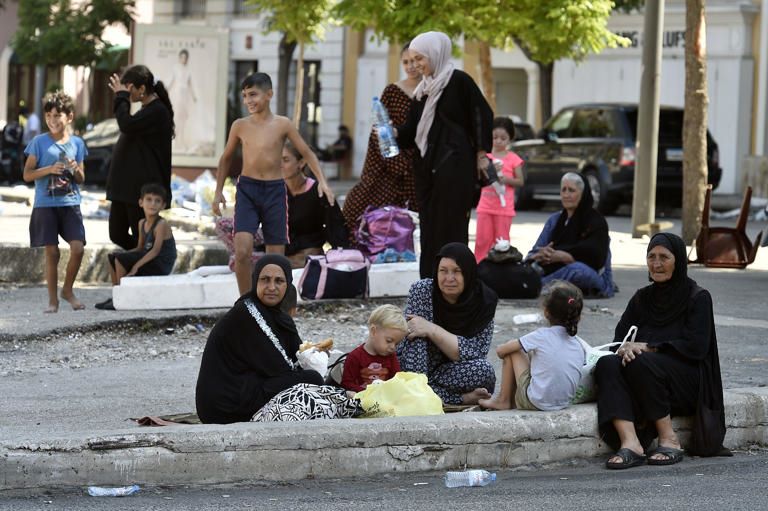Anamika Dey, editor
Brief news
- Israel intensified military actions in Lebanon following the assassination of Hezbollah commander Sayyed Hassan Nasrallah, targeting multiple Hezbollah positions and increasing tensions in the region.
- The death of Nasrallah, a significant figure in Hezbollah and Iran’s network, has prompted threats of retaliation from Iran and continued missile attacks from Hezbollah against Israel.
- The conflict has resulted in significant casualties, with over 1,670 reported deaths in Lebanon since hostilities began, and has led to humanitarian efforts by the UN to assist those affected by the violence.
Detailed news
After killing the group’s commander, Sayyed Hassan Nasrallah, Israel targeted multiple targets in Lebanon on Sunday, thereby increasing the pressure on Iran-backed Hezbollah to launch additional terrorist attacks.
The Israeli military reported that the air force had “hit dozens of Hezbollah terror targets in Lebanon,” including launchers that were directed toward Israeli territory, structures that housed weapons, and additional Hezbollah terrorist infrastructure.
A statement issued by the navy indicated that a projectile approaching Israel from the Red Sea region had been intercepted, and that eight additional projectiles, which originated from Lebanon, had landed in open areas.
In a significant Israeli airstrike on Friday, Nasrallah was slain at the headquarters of the group in the southern suburbs of Beirut. It was a significant setback for both Hezbollah and Iran, as it resulted in the loss of an influential ally who had assisted in the development of Hezbollah into the cornerstone of Tehran’s network of allied organizations in the Arab world.
On Saturday, Israel proclaimed his demise, and Hezbollah subsequently verified it.
Hezbollah declared its intention to persist in its conflict with Israel in its proclamation, and it has since continued to launch missiles at it, including a salvo on Sunday morning.
Nasrallah’s demise concluded a traumatic fortnight for Hezbollah, which commenced with the detonation of thousands of communications devices utilized by its members.
It was widely presumed that Israel was responsible for the action, but it has not affirmed or denied it.
The escalation has heightened concerns that the conflict could spiral out of control, potentially involving Iran and the United States, Israel’s closest ally. 
Since the Iran-backed Palestinian group’s attack on Israel on October 7, Hezbollah and Israel have been engaged in a parallel conflict with Israel’s war in Gaza against Hamas.
The health ministry of Lebanon reported that 33 individuals were slain in Israeli strikes on Lebanon on Saturday, bringing the total number of casualties since the outbreak of hostilities on Oct. 8, 2018, to over 1,670. This figure includes 104 minors.
In Beirut, displaced families spent the night on the benches at Zaitunay Bay, a series of restaurants and cafes along the waterfront where private security typically evicts any loiterers.
Families had laid out mats to sleep on and poured tea for themselves on Sunday morning, with nothing more than a duffle bagful of clothing.
“We will remain in this location, regardless of the amount of bombing or displacement – you will be unable to destroy us.” We will not depart. Francoise Azori, a resident of Beirut, said, “This is our country, and we are staying.” She was jogging through the area.
The World Food Programme of the United Nations announced on Sunday that it had initiated an emergency operation to supply food to up to 1 million individuals who have been impacted by the conflict in Lebanon.
‘Power balance’
On Saturday, Israeli Prime Minister Benjamin Netanyahu declared that Nasrallah’s death was an essential measure in the process of “altering the balance of power in the region for years to come.”
In a statement, Netanyahu cautioned that the days ahead would be difficult, stating, “Nasrallah was not a terrorist, he was the terrorist.”
Israel claimed that it assassinated Nasrallah, as well as senior Hezbollah official Ali Karaki and other commanders.
The United States firmly supports Israel’s right to self-defense, and U.S. President Joe Biden characterized Nasrallah’s murder as a measure of justice for the many victims he had caused, including thousands of Americans, Israelis, and Lebanese.
However, when asked whether an Israeli ground incursion into Lebanon was inevitable, Biden responded to media on Saturday, “It is time for a ceasefire.”
After Nasrallah’s death, sources informed Reuters that Ayatollah Ali Khamenei, the Iranian Supreme Leader, was relocated to a secure location within Iran. Khamenei declared that Nasrallah’s death would be avenged, and that other militants would continue to pursue his course in the battle against Israel.
Tehran issued a warning against any attacks on its diplomatic facilities and representatives, and called for a U.N. Security Council meeting to address Israel’s actions in Lebanon and other regions of the region.
According to Iranian media, deputy commander Abbas Nilforoushan, a senior member of Iran’s Revolutionary Guards, was also slain in the assaults on Friday..
“Israel’s war was not with the Lebanese people,” stated Israeli Defense Minister Yoav Gallant. According to his office, he engaged in discussions late on Saturday regarding the potential expansion of Israel’s military offensive on its northern front.
Hezbollah has declared that it will discontinue fire only upon the conclusion of Israel’s Gaza offensive. Hamas and other Hezbollah allies released statements in lament of his passing.
Condolences from a Christian perspective
The assassination of Nasrallah, according to Lebanon’s foremost Christian cleric, Maronite Patriarch Bechara Boutros Al-Rai, has “opened a wound in the heart of the Lebanese.”
Rai has previously expressed his dissatisfaction with the Shi’ite Islamist organization Hezbollah, accusing it of drawing Lebanon into regional conflicts.
In a sermon, he expressed his personal condolences to the family and community of Sayyed Hassan Nasrallah.
The arsenal of Hezbollah has been a source of contention in Lebanon for an extended period, a nation with a history of civil conflict. Hezbollah’s Lebanese detractors contend that the organization has unilaterally entangled the nation in conflicts and undermined the state.




